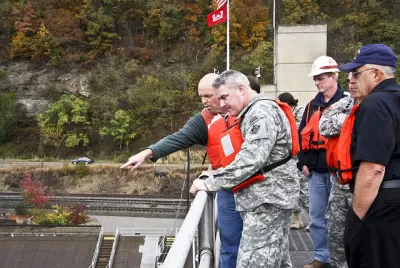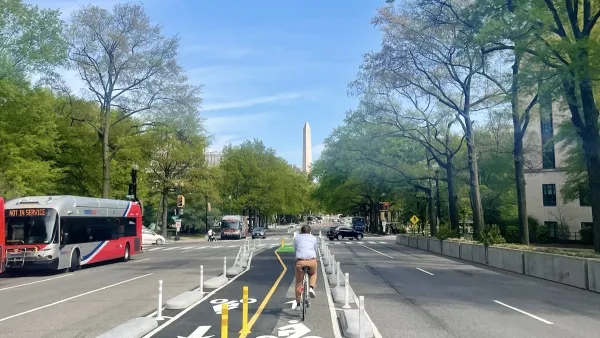Inland waterways have capacity to spare to help deal with an expected surge in freight movement around the country. Some TLC will be required to maximize that potential, however.

"As projections show a steep increase in freight movement over the next few decades, stakeholders representing inland waterway transportation said they are well-positioned to handle the growing demand but that the federal government needs to help them invest in the projects that will keep things running smoothly," reports Alexander Laska.
Laska is sharing information presented at the TRB Annual Meeting session on the subject. The key takeaway from the session: freight tonnage is growing quickly—expected to rise 40 percent by 2045—but freight movement on inland waterways has been declining and is operating under capacity.
The session also focused on the federal investments that could maximize the opportunity for inland waterways to remove some of the anticipated stress on the national highway system.
FULL STORY: Inland Waterways Stakeholders Highlight Federal Funding Challenges

Maui's Vacation Rental Debate Turns Ugly
Verbal attacks, misinformation campaigns and fistfights plague a high-stakes debate to convert thousands of vacation rentals into long-term housing.

Planetizen Federal Action Tracker
A weekly monitor of how Trump’s orders and actions are impacting planners and planning in America.

Chicago’s Ghost Rails
Just beneath the surface of the modern city lie the remnants of its expansive early 20th-century streetcar system.

Bend, Oregon Zoning Reforms Prioritize Small-Scale Housing
The city altered its zoning code to allow multi-family housing and eliminated parking mandates citywide.

Amtrak Cutting Jobs, Funding to High-Speed Rail
The agency plans to cut 10 percent of its workforce and has confirmed it will not fund new high-speed rail projects.

LA Denies Basic Services to Unhoused Residents
The city has repeatedly failed to respond to requests for trash pickup at encampment sites, and eliminated a program that provided mobile showers and toilets.
Urban Design for Planners 1: Software Tools
This six-course series explores essential urban design concepts using open source software and equips planners with the tools they need to participate fully in the urban design process.
Planning for Universal Design
Learn the tools for implementing Universal Design in planning regulations.
planning NEXT
Appalachian Highlands Housing Partners
Mpact (founded as Rail~Volution)
City of Camden Redevelopment Agency
City of Astoria
City of Portland
City of Laramie




























